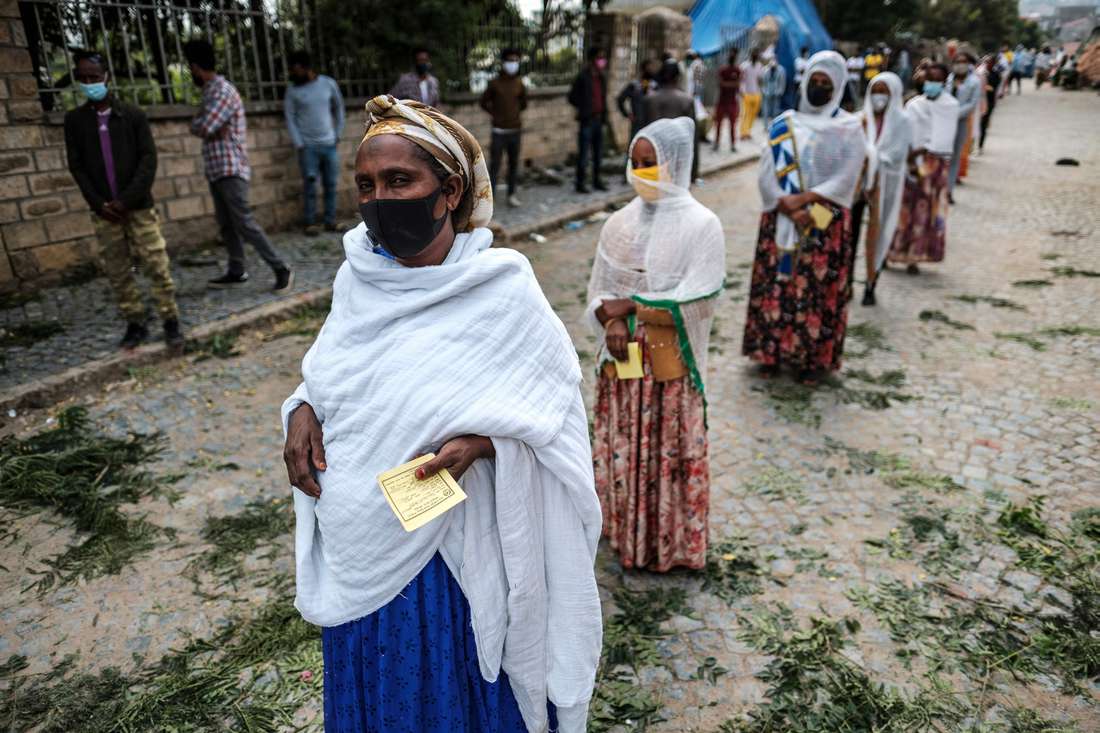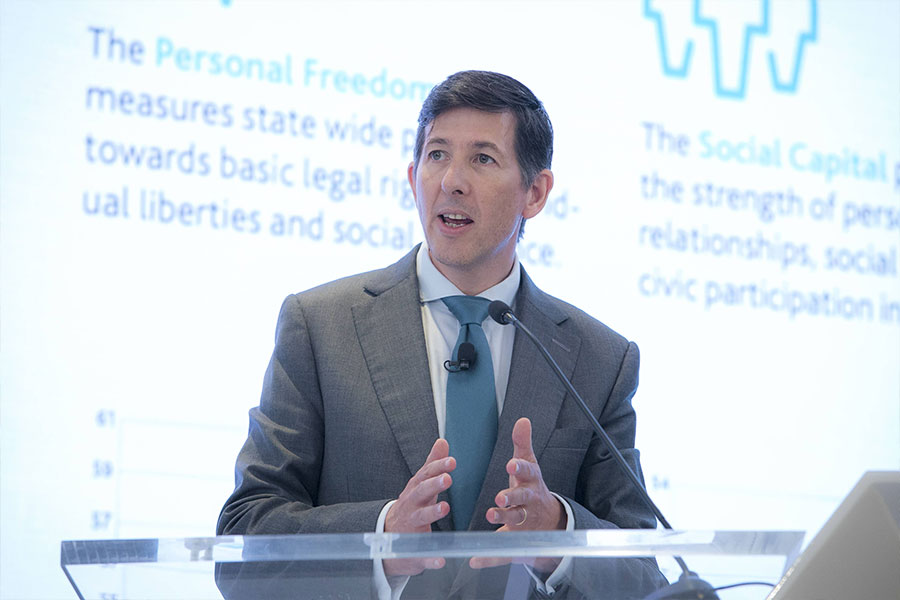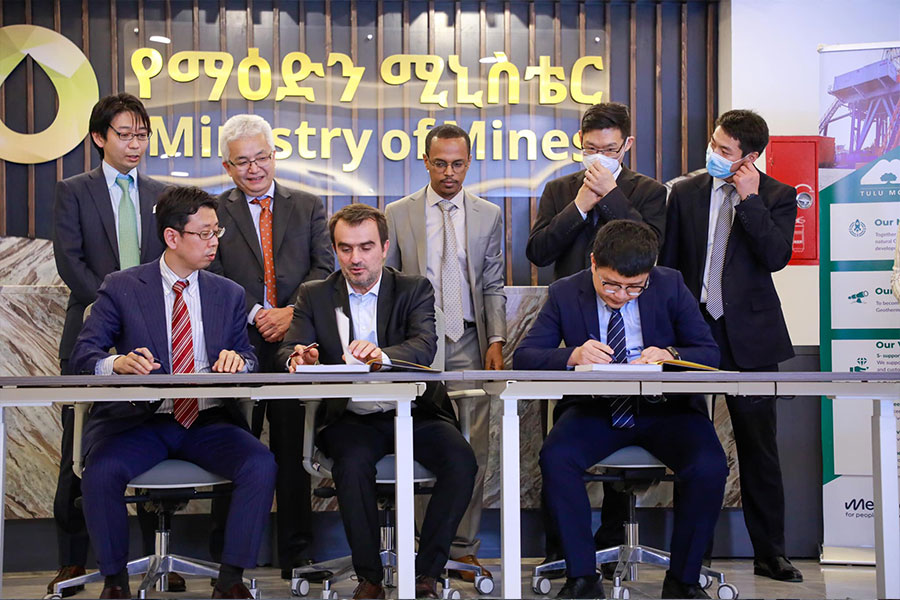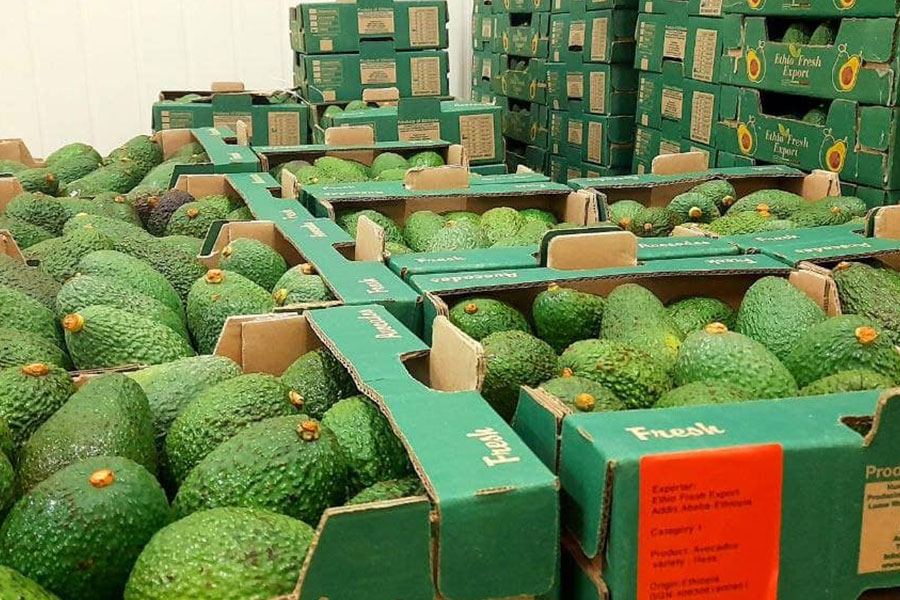
Unlike the past few holidays dampened by the COVID-19 pandemic and the year-long war, Addis Abeba appears to have regained its mood for festivities. Nowhere is this more evident than at Mesqel Square, a traditional setting for public events. Last week, the area was bustling with the Christmas spirit.
The buzzing phrase responsible for the revival? “The Great Ethiopian Homecoming."
A month ago, the administration of Prime Minister Abiy Ahmed (PhD) called Ethiopians abroad to sojourn home for the upcoming Christmas holiday, daring no less than one million members of the Diaspora to pass through the gates of Bole International Airport. Along Jomo Kenyatta Street, on the main road leading to Addis Abeba Stadium, the city administration has opened Addis Diaspora Hall. It is a one-stop information desk.
With lofty interior design and posh furniture, the desk was opened on December 29, 2021, to guide members of the Diaspora in their quest for investment, immigration services, and social needs. Across the Hall lies the recently renovated Mesqel Square, where a few food trucks have mainly planned to cater to the Diaspora. In the background, the patriotic decorations at the Addis Abeba Exhibition Centre gate are perceptible from a distance, luring shoppers.
Run by the Exhibition Centre & Market Development Enterprise, a public company under the city administration, the venue hosts its second bazaar since it reopened after it had closed for renovation work in 2019. That year it saw over half a million people visit the Christmas Bazaar.
Middle of a workday last week, the Exhibition Centre had attracted hundreds of shoppers who could be seen roaming around the various stalls and shops in the heat of the afternoon sun. Some were resting in the shade offered by a cafe inside. Shoppers were greeted by some of the 500 vendors selling Christmas trees on the right, a line of bank stalls on the left and a field offering horseriding down the middle.
The scene is hectic, accompanied by loud music blaring from enormous speakers. There was little to enjoy from the melody.
The bazaar opened two weeks ago is the only major event in Addis Abeba for the Christmas holiday. It will remain open until Christmas Eve on January 6.
Other popular venues, such as Mechare Meda in the Sarbet area, and Ghion Hotel are not hosting any events as city officials have imposed restrictions complying with the state of emergency declared last month. The Millennium Hall on Africa Avenue (Bole Road) remains to serve as a medical treatment centre for COVID-19 patients.
Shoppers peruse the items for sale at the Christmas bazaar. The vendor on the right is selling peanut butter, while clothing is on offer directly to his left. The bazaar is scheduled to run until Christmas Eve on January 6, 2022.
The number of vendors had not changed from the last event when Eyoha Addis Entertainment organised the Ethiopian New Year bazaar in September. The veteran event organiser established by Ayu Alemu six years ago with 50,000 Br in paid-up capital secured the venue after offering 40 million Br. It had rented out space to vendors at considerably higher prices than this week's bazaar.
Vendors paid 50,000 Br to rent a stall in one of the Centre's four pavilions, while others shelled out a whopping eight million Birr to secure an entire pavilion for themselves. The Enterprise hosts the bazaar, offering vendors a 20pc discount in fees, hoping vendors would match the gesture with goods available for visitors at lower prices.
It was an abrupt decision born out of a default by Betahon Special Events Plc to organise the bazaar. According to the Enterprise's executives, a newcomer to the event industry, Betahon had offered a record-high 68 million Br, only to fail to meet its obligations. The company's offer was 19 million Br higher than what Eyoha Addis Entertainment paid to host the same event two years ago.
Betahon has also won the bid to host the Easter Bazaar, scheduled for April 2022, after offering 43 million Br. It did not make out the payment to the Enterprise for the holiday this week; the latter terminated the contract and took up the challenge on its own. The Enterprise had only nine days to organise it itself.
Usually, such events take three months to organise.
"It's a wonder how they pulled it off," said Tadesse Tamrat, public communications director at Jorka Events, another event organiser and veteran in the industry.
For Tesfaye Abate, director of corporate communications, the Enterprise was established to host various events. Organisers were invited to take part to encourage the private sector.
"We don't think that's workable any longer," he said.
The perk the Enterprise sees with this new arrangement is to expand on its activities in corporate social responsibilities, giving out spots for free to those collecting donations. It has also dedicated two percent of its revenues to the Ethiopian Defense Forces and those displaced by the war in the north.
The work cut out for the Enterprise was mildly eased as Betahon had already made deals with close to 500 vendors. They were refunded payments made to the company and renegotiated terms with the Enterprise.
Eko Garment Manufacturing Association is among the vendors, a local clothing manufacturer that sells men's and children's clothing at much lower prices than seen in markets outside. Rented out for 75,000 Br, their stall lies at the entrance of one of the pavilions and could be seen attending to more visitors than neighbouring booths. T-shirts and trousers at Eko's go for 400 Br.
Tsehay Garedew, one of the members of the Association, has noticed turnover has dwindled despite the visible crowd. They could sell around 5,000 Br worth of goods on weekdays.
"It would go as high as 10,000 Br for the New Year's bazaar," she said.
Vistors see the products offered by Eko as reasonable. There are others having stalls but with prices on the high side.
Dagmawi Tsegaye was among the shoppers who paid a visit to the Eko stall, having budgeted 5,000 Br to spend on clothing. He bought a T-shirt there but showed little interest in the products offered by other vendors, which he saw as too expensive.
"What's the point of coming to the exhibition centre otherwise," he bemused.
The Enterprise's managers seem to be keen to attract visitors, lowering entrance fees to 30 Br, matching the fare from two years ago. They have also been investing heavily in promotion on TV and radio programmes; shelling out close to 2.5 million Br to a single station.
“We hoped more people would visit knowing the fee is lower,” said Tesfaye. "Although there was not enough time to put up billboards around the city, we're advertising on screens."
However, it is not all bad. As the holiday approaches, visitor numbers have started to swell to the thousands each day. Vendors are beginning to see the change.
Firaol Seyoum has seen his business picking up over the weekends. He offers horse and camel rides at the Centre for 50 Br and 100 Br a session, respectively. Last weekend, no less than 500 people had paid for his services, including members of the Diaspora, he said.
The Enterprise is looking forward to welcoming those from the Diaspora, having organised concerts and availing cultural artefacts for sale. It is also preparing to host a tour of the premises, including the newly-opened parking space beneath Mesqel Square, which is under its supervision.
Although the only bazaar in the city seems to have found a modicum of success, it has meant trouble for other event organisers hoping to reap the benefits of the holiday.
Jorka Events had hoped to host a bazaar much as it did at Mechare Meda in the holidays past. However, it has been idled by a lack of venues. The company recently launched a series of bazaars dubbed "Asbeza" in partnership with the City Administration. Conceived to link shoppers with manufacturers, the bazaar has taken place twice. The next one scheduled in a month, Asbeza has proven more costly as vendors are not bound to pay for their spots.
Jorka depended on the Christmas bazaar to compensate for the losses. Its managers have been left disappointed.
"We'd planned to host one, but venues weren't available," said Tadesse. "It would have been helpful had the authorities made the newly-built parks available."
Despite talks and proposals submitted, they never were materialised. Tadesse observed that if the situation for Jorka, which has built a reputation in the industry, is this difficult, it would be much more challenging for up-and-coming organisers.
"It's a trying time for the event organising industry," he said.
However, the Enterprise, under the management of Tilahun Tadesse, takes solace in their newfound feat, with plans to continue organising similar events in the seasons ahead.
PUBLISHED ON
Jan 01,2022 [ VOL
22 , NO
1131]

Year In Review | Sep 10,2021

Films Review | Jul 13,2019

Exclusive Interviews | Oct 09,2021

Radar | Apr 03,2021

Radar | Sep 02,2023

Editorial | Feb 05,2022

Fortune News | May 23,2021

Fineline | Jun 07,2020

Fortune News | Apr 02,2022

Featured | Oct 30,2021

Dec 22 , 2024 . By TIZITA SHEWAFERAW
Charged with transforming colossal state-owned enterprises into modern and competitiv...

Aug 18 , 2024 . By AKSAH ITALO
Although predictable Yonas Zerihun's job in the ride-hailing service is not immune to...

Jul 28 , 2024 . By TIZITA SHEWAFERAW
Unhabitual, perhaps too many, Samuel Gebreyohannes, 38, used to occasionally enjoy a couple of beers at breakfast. However, he recently swit...

Jul 13 , 2024 . By AKSAH ITALO
Investors who rely on tractors, trucks, and field vehicles for commuting, transporting commodities, and f...

Jun 28 , 2025
Meseret Damtie, the assertive auditor general, has never been shy about naming names...

Jun 21 , 2025
A well-worn adage says, “Budget is not destiny, but it is direction.” Examining t...

Jun 14 , 2025
Yet again, the Horn of Africa is bracing for trouble. A region already frayed by wars...

Jun 7 , 2025
Few promises shine brighter in Addis Abeba than the pledge of a roof for every family...